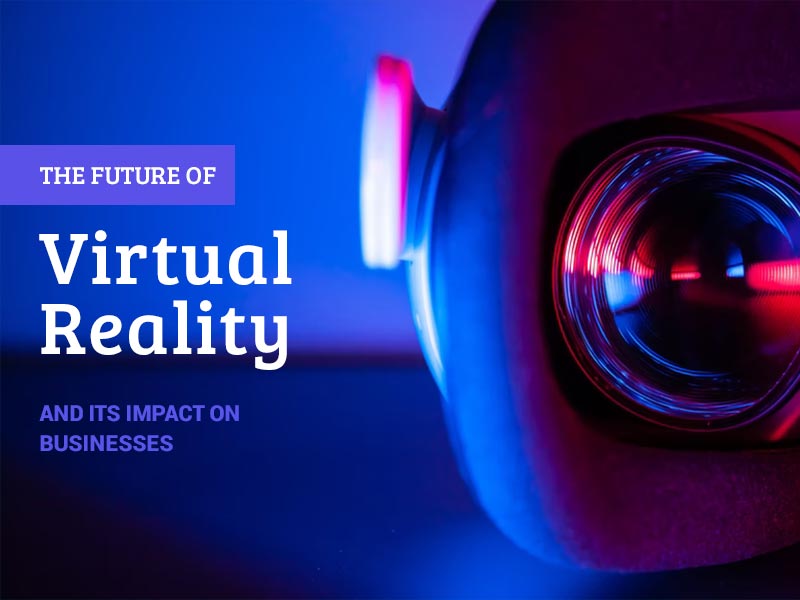You must have heard of new, modern technology which we use on a regular basis. Things like personal assistant such as Alexa to autonomous vehicles – everything is getting smarter and embracing digital transformation one way or another.
Nowadays, smartphones are the center of our computerized lives. It may be difficult to assume life without one, but ten a long time from presently, a modern gadget may take the put of the adored smartphone.
Similarly, virtual reality was a concept which no one thought could be a reality. Also known as VR, it has taken the industry by storm by offering consumers immersive and interactive experiences. The technology hit the standard and got popularity with the introduction of reasonable, consumer-friendly headsets in the past few years.
As of now, businesses are utilizing artificial intelligence and immersive experiences to bring something unique and innovative in the market. This isn’t shocking; given the conceivable outcomes it makes for liberating our minds enabling our minds to see and visit places that exists within the computerized world. And this is where companies are capitalizing!
No matter if you are an online retail store or an established physical business, the use cases of virtual reality are endless.
What’s The Future of VR?
Let’s be honest – no one thought VR technology could be as big as it is now!
As per latest reports, a total of 6.1 million VR devices and headsets have been sold in 2021 alone. This brings the accumulative total sales to 16.44 million units ever since its inception.
With rampant increase of these devices, not only major tech companies such as Google and Samsung are coming up with newer, improved VR devices but the availability of relevant content is on a rise as well.
Likewise, companies such as VisionX strive hard to build immersive and interactive experiences for consumers using 3D Modeling, AR, and VR technologies.
Initially restricted to the gaming industry, VR technology has panned out where it now offers a wide range of applications in multiple domains.
Now, the technology covers industries including, but not limited to, business, healthcare, education, travel, and more. But the question here arises – what impact does VR have on businesses? In this post, we are going to explore and discuss the impact of virtual reality on businesses.
Impact of Virtual Reality on Businesses
The technology has already done wonders in the gaming sector, and people who have experienced it know its true potential. However, what’s next?
People question the use of VR aside from gaming. Is it possible to use virtual reality in practical world? Can companies utilize this to interact with their target audience or improve business operations?
According to TracAtica, the VR business is expected to cross $9.2 billion by 2021. Much of the credit (as mentioned above) goes to tech companies who are focused on coming up with unbelievable VR headsets focused on enhancing entertainment experiences.
But this is just the beginning! If experts are to be believed – VR technologies are going to truly revolutionize our perception and how we see the world. Unless you have indulged in the experience, you are unaware of the capabilities of AR & VR.
Nearly every business process you expect your employee to do each day can be simulated via VR to make things easier. Furthermore, you can use VR technology to offer immersive experience to your customers.
In simpler words, using virtual reality in a business setting to its full potential can boost proficiency, productivity, and efficiency.
Businesses can implement VR technology in different departments such as finance, marketing, HR, or production to keep track of the overall performance.
Let’s further discuss how virtual reality can impact different business sectors.
VR in Industry and Work
Ever since the Corona virus hit the world, everything has changed. The way businesses operate, the way people shop – almost everything is affected due to the pandemic.
Companies started implementing a Work from Home policy to minimize the cases, but it came with its fair share of challenges. From onboarding to trainings and more, businesses started using VR technology to tackle these solutions efficiently. They created an environment to which employees could relate through simulation. It became easier for businesses to arrange corporate activities, orientation, and more.
VR in eCommerce
This is where AR and VR recently surprised everyone!
Online shopping already offered ‘so much’ convenience to people. You could not only browse product, but get the products delivered right at your doorstep. Artificial intelligence has taken it to the next level.
Let’s take an example to further clarify this. You are looking for some furniture for your home or office space. Previously, we used to visualize in our minds of how a product would look at a certain position. This changed when manufacturers launched mobile applications with portfolio where you can virtually place the product at your desired location to see if it is the right fit. How easy is that?
Conclusion
In 2021, more than 17.7 percent people in the United States will be using VR technology. This suggests how people and businesses are embracing digital transformation and are adapting the technology with each passing day.
Virtual reality has really changed the way we consume things now. From shopping to taking online trainings, the immersive experience has taken things to next level providing you peace of mind and convenience.







